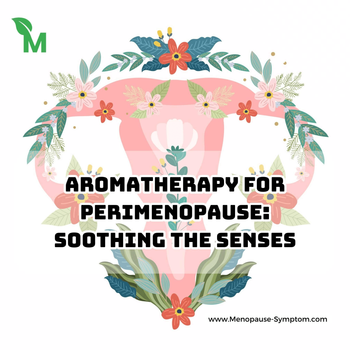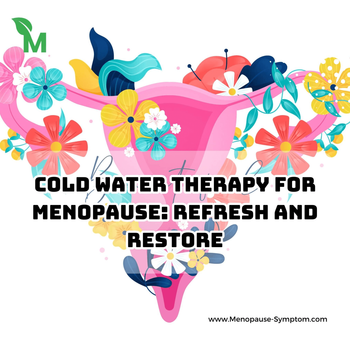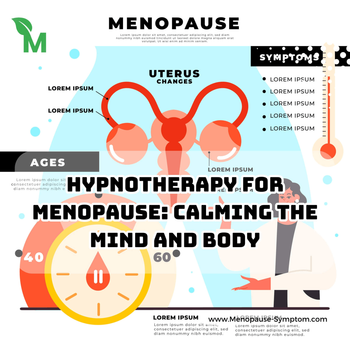However, the transition from perimenopause to menopause can bring about many unpleasant symptoms, such as hot flashes, difficulty sleeping, and mood swings.
1. Menstrual disorders
Symptoms: Irregular periods, changes in menstrual flow, heavy or light periods. About 80% of women experience menstrual disorders during perimenopause.
2. Hot flashes
Symptoms: Sudden feelings of heat in the face, neck, and throughout the body, often accompanied by facial flushing and sweating. About 75% of women experience hot flashes during perimenopause.
3. Sleep disorders
Symptoms: Difficulty falling asleep, not sleeping deeply, waking up many times during the night, feeling tired after waking up. About 60% of women experience sleep problems during this period.
4. Mood swings
Symptoms: Feeling irritable, easily agitated, anxious, depressed, sudden mood swings. Most women are affected by mood problems during perimenopause due to other symptoms.
5. Vaginal dryness
Symptoms: Feeling dry, itchy in the vaginal area, pain during sex. About 40-50% of women experience vaginal dryness.
6. Headaches and dizziness
Symptoms: Frequent headaches, feeling dizzy, lightheaded. Due to changes in estrogen hormones, insomnia can easily lead to this condition.
7. Weight gain
Symptoms: Weight increases without changing eating and exercise habits. Due to changes in energy metabolism.
8. Decreased sexual desire
Symptoms: Decreased sexual desire, difficulty reaching orgasm.
9. Urinary problems
Symptoms: Frequent urination at night, urinary incontinence.
10. Osteoporosis
Symptoms: Bones become weak and brittle. This is a serious complication of perimenopause due to estrogen deficiency.
Note: The above symptoms may appear at different levels depending on each person. Some women may experience most of the symptoms, while others only have a few mild symptoms.
During perimenopause, a woman's body undergoes many hormonal changes. The decrease in estrogen can lead to a variety of unwanted symptoms. Researchers have shown that getting used to these changes and taking the right supportive measures can help women maintain good health and spirit. Pelvic floor therapy is one of these strategies.
What is the pelvic floor?
The pelvic floor is a group of muscles and ligaments that support the
bladder, cervix (womb) and bowel. The passageways for these organs, the urethra from the bladder, the
vagina from the cervix and the anus from the bowel, pass through the
pelvic floor.
What is the function of the pelvic floor muscles?
A strong pelvic floor supports the pelvic organs, preventing problems such as:
· Urinary incontinence (the involuntary passage of urine or stool)
· Prolapse (lack of support) of the bladder, cervix and bowel.
The pelvic floor muscles also help you control your bladder and bowel function, such as helping you ‘hold’ until the right time and place.
What is Pelvic Floor Therapy?
Pelvic floor therapy is a method of strengthening and increasing the flexibility of the pelvic muscles. Not only does this help reduce symptoms caused by perimenopause, it also supports sexual health, improves bladder control and increases feelings of well-being. Pelvic floor exercises help improve blood circulation and aid in recovery from hormonal changes.
Why is Pelvic Floor Therapy Important During Perimenopause?
Reduces Incontinence: Many women experience urinary incontinence, discomfort and pain during perimenopause. Pelvic floor therapy helps improve this condition by strengthening the pelvic muscles.
Improves Sexual Health: Menopause can cause a decrease in sexual desire. By strengthening the pelvic floor, women can feel more satisfied and enjoy a better sex life.
Emotional Support: Performing pelvic floor exercises helps reduce stress, improve mood and promote relaxation. Taking care of your mental health is also important during perimenopause.
Effective Pelvic Floor Exercises
To effectively perform pelvic floor therapy, women can refer to some of the following simple exercises:
Kegel Exercises: As one of the most popular exercises, Kegel helps strengthen the pelvic floor muscles. Women can do this by contracting the muscles as when stopping urination, holding for 5 seconds and then releasing. Repeat 10-15 times a day.
Yoga and Pilates: Gentle yoga and Pilates exercises not only help strengthen muscles but also improve flexibility and relaxation. Movements such as "Cat-Cow" or "Bridge" can help the pelvic muscles become stronger and more flexible.
Walking and Aerobic Exercise: Regular exercise such as walking or gentle aerobic exercises not only improves overall health but also supports the body's recovery process during perimenopause.
Benefits of Pelvic Floor Therapy
Pelvic floor therapy is not just about exercise. It also brings many other benefits to women in perimenopause:
Improve Sleep Quality: Many studies have shown that pelvic floor exercises can reduce symptoms of insomnia, help improve deep sleep and sleep quality.
Increase Confidence: Improving pelvic floor health helps women feel more confident in relationships, including family and social life.
Helps Regulate Emotions: Research shows that physical exercise also supports mood and emotional regulation, helping to reduce the risk of depression and anxiety during perimenopause.
Conclusion
Although perimenopause brings many challenges, with the support of pelvic floor therapy, women can overcome these obstacles more easily. Regular exercise not only helps improve physical health but also creates a more comfortable and confident mind. If you are looking for an effective way to support this transition, pelvic floor exercises can be a great option. Start your health care journey today to feel the benefits this therapy brings.
Source: Team MPS compiled, analyzed and wrote. Please dont reup without source. Many thanks.

Aromatherapy For Perimenopause: Soothing The Senses
10.04.2024
Taking care of yourself, taking time to relax and enjoy peaceful moments will not only help you overcome perimenopause easily, but also bring you a life full of energy and happiness.

Cold Water Therapy For Menopause: Refresh And Restore
09.02.2024
Listen to your body and find what works best to make menopause a positive experience, supporting your healthy and happy life. Start this journey with confidence, because you deserve the best in life!

Hypnotherapy For Menopause: Calming The Mind And Body
09.02.2024
Everyone has the right to be happy, and through natural methods like hypnosis, you can achieve that during menopause. Experience and explore the positive things life can bring.
